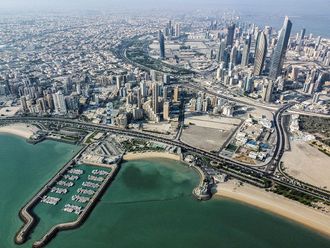
Kuwait City: The Ministry of Interior has revealed that four farms in Kuwait have been busted for bringing in 600 workers as part of an illegal permit scheme, Al Qabas reported.
An official at the Public Authority for Manpower was referred to the public prosecutor, for allegedly forging the number of employees needed in exchange for money.
A source told Al Qabas, that the General Authority for Agriculture issued paperwork claiming that the farms needed workers when in actual fact they did not even exist. Around 130 workers were deemed necessary for the fake ‘farm’.
Some of the 600 workers have been identified, while the majority have not been found. Once their whereabouts are revealed they will be sent back to their countries.
Many of the workers that came to Kuwait found that they do not have a job, thus resorting to day to day jobs.
Illegal permit trading
The government has been cracking down on illegal permit traders in recent months.
Last week, the Assistant Under-Secretary of Kuwait’s Ministry of Interior, General Sheikh Mazen Al Jarrah, was arrested for connections with jailed Bangladeshi MP Mohammed Shahid Islam.
Islam is being charged with money laundering, human trafficking and bribery.
Both Islam and Al Jarrah are accused of illegal trading permits. The practice is deemed illegal as employers in Kuwait sell work permits to workers from abroad, usually on an average for 1,500 Kuwaiti dinars ($5,000), most times without a guaranteed job in return.
Those that enter Kuwait with one of these permits often find themselves working as temporary drivers to carrying bags on a construction site and other day-to-day jobs.
As of last month, there are approximately 90,000 illegal permit holders in Kuwait. Before the crisis, the number was estimated to be over 100,000 but since the Ministry of Interior initiated the amnesty programme in April, 26,000 illegal permit holders left. The amnesty programme allowed them to travel without a penalty or fine and paid for their flights back home.








